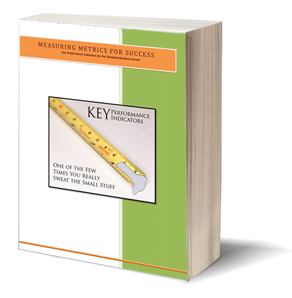Blog writing – it’s one of the hardest, easiest, most frustrating, most relaxing, creative, unoriginal thing you can do… ish. On the good days, you get an idea and golden words just flow from thought to fingers to keyboard to publish. On the bad days, every word you put down is an exercise in pulling teeth.
At least for us, some of that frustration comes from needing to get the words right. We talk a lot about getting the right tone, being grammatically correct, having few errors… and it’s important, especially when blogging for business. However, that sort of thing can often inhibit the creative process.
Then, you have guest blogging and writing for clients, and that takes… well, work. For the most part, you aren’t free to just write; you have to match the tone and topics the site visitors are used to reading about. You need to research. You need to look at things like:
- Previously covered topics – you don’t want to be redundant
- Previously written articles – compare the different tones of the guest writers and decide whether you’re a good fit
- Their incoming links – a good indication of the type of visitors a site has can be found by looking at who is linking to them.
- Comments, if they’re allowed – you can gain a lot of insight into visitors by what they say
No matter what you’re writing, however – or who you’re writing for, the five ways laid out below are quick and to the point. If you’re new to writing, hesitant, or a veteran who needs a little reminding, read on, kimosabe!
5 Ways to Sharpen Your Writing Skills
In today’s society, the demand for writers who can actually write and spell is much higher than it ought to be. Nowadays, it seems people get too caught up with the intricacies of the written word, which, sometimes, aren’t even accurate.
For example, what about the rule “i before e, except after c”? Well, that’s a bunch of bull. Being, weird, science, seize, height, weight, etc… All examples of where said rule is null and void.
People tend to pay way too much attention to the “rules” behind spelling and grammar. In turn, this ends with them spelling things wrong that they might have originally spelled correctly. That is, had they not been so caught up with what they learned in third grade English class.
Here is a list of five easy ways to sharpen your writing skills that hopefully, will help you steer clear of confusing the dickens out of yourself in the middle of a productive thought.
5. What the heck’s your point?
No one wants to hear you explain in three paragraphs how you helped an old lady cross the street. Instead of droning on and entering the redundant world of run-on sentences, simply say, “I helped an old lady cross the street.” If you care to add more color to your wording, you might say something along the lines of, “I helped a really old lady cross the street.”
Try practicing to reduce your blah, blah, blah, by adding no more than ten extra words to whatever it is you’re trying to say. There’s a reason Twitter only allows you to type 140 characters, people!
4. Be urban.
Whether or not it’s entirely socially acceptable to throw out words from the Urban Dictionary, do so from time to time. If you’re a competent writer and you use a word like “ain’t,” most people are going to know that you ain’t an idiot. Allow yourself a little freedom in your writing, and remember to always be yourself – originality is the purest form of entertainment.
3. Fact Check
When writing absolutely anything, it’s critical that you know what it is you’re talking about. For example, if you say something along the lines of, “In 1492, Columbus sailed the ocean blue,” you’d better be 100 percent sure that’s when he sailed the ocean. There’s nothing worse than providing your readers with inaccurate information.
2. No double negatives!
Double negatives are probably one of the most commonly used no-nos of the English language, no pun intended. Even if you’re a parent, you don’t have to say no twice.
Instead of saying, “He doesn’t have no idea,” you’re going to say, “He doesn’t have any idea” or even, “He has no idea”. If you want to sound like you know what you’re talking about in your writing, it’s a good idea to refrain from coming off like a character in the movie, Joe Dirt, or even worse, Joe Dirt himself. Know what a double negative is, and know that it’s never okay to use one.
1. Get it right!
One of the most annoying things a writer can do is misuse to, too, and two; their, they’re, and there; and it, its, and it’s. When using any of these words, remember – it is how it sounds, literally. It is = it’s. They are = they’re. If you’re confused about how to spell any of these divisions of said words, look it up. -And remember, Google is your best friend!
So remember, when writing an article, an essay, content for a website, or anything else that you want people to take seriously, know your stuff. -And if you don’t know, ask! There’s nothing better than being well informed, and there’s nothing wrong with doing what it takes to get there.
In Conclusion
We’d like to add a few things that, although they aren’t mentioned, are prevalent throughout this guest post. The first is humor; don’t be afraid to add a little fun into your posts. Just because you’re blogging for business or writing guest posts doesn’t mean they all have to sound like a professor wrote them.The second is formality. Contractions aren’t poison, people. Yes, you can use them and not ruin the professional feel. In actuality (unless you’re writing a formal research paper or something for college, etc.), a lack of contractions can cause an article to sound stilted. The most laid-back individual can come across as a stuffed shirt and know it all.







































15 Responses
I disagree with “be urban”.
IMHO, it’s a bit unpolite, especially if you write in business context, or in other formal situations and conditions.
And so far, I write in such condition.
Hey Kevin, that’s what makes the world go round… being and thinking differently. With that said, I see in your case it may not be appropriate being urban however, I think the point Jahnelle was trying to make is, to bring your own voice and personality into your writing when appropriate.
I love the suggestion to ‘be urban.’ Once you’ve established the fact that you’re a good writer, extending your style in the next, logical step. Including more urban words does, in fact, add a whole new dimension to your pieces and gives you remarkable flexability, allowing you to connect with entirely new target demographics in the process. Solid advice, y’all! 😉
Jack, I like you… 😉
So true. Many people in writing their piece forget there’s even a point to what they are writing. Always make sure to keep to the point and keep it as a focal piece to your writing.
The advice to be ‘urban was really ridiculous, pathetic and shows the writer’s bankrupt state of mind. He should know that in formal writing, standard English is the norm.
you need to come up with something comepletely new, that’s the whole point.
And don’t do extremes: no need to write a novel, but it’s just impersonal if you barely write a couple of words …. and oh yes, of course it’s important to mind your speling and grammar, I agree with what;s been said in this article..
A good writer is someone who succeeds in keeping the readers engaged just as this post has. Its important to keep certain points while writing posts and even more important is to write for the readers. A writer has to always try to produce fresh contents which are fun, interesting and informative.
Sure Tim, but what if the blog owner is not a writer, then what do they do? Sometimes, suggesting tools along with directions of where to look for data, ideas etc. gives our readers just enough to inspire. Well, at least that’s the intent. Thanks for your input.
Numbers 3, 2 and 1 come across more like pet peeves than solid tips on how to sharpen one’s writing skills. Not that I disagree with the advice! I’ve also found that “loosening up” — writing with more humor and a more informal tone adds to the amount of feedback received. What I often have difficulty with is dancing on that fine line of what is appropriate for a business, but still seem human, friendly and approachable.
Great site, you have lots of useful and interesting articles!
I definitely have to agree with revising over and over again. There is nothing worse than reading a blog with spelling mistakes. One spelling mistake can reduce your credibility drastically. This is more a reminder to myself than anything else.
I’d like to add rules numbers 6, 7 and 8: revise, recheck, and revise again. You’ll be amazed at the number of mistakes you miss on your first read-through. A good trick is to put aside whatever you have written for a few hours and come back to revise it with fresh eyes. You’ll catch many more mistakes this way than you would revising your work immediately after writing it.
I think injecting humor and personality into a blog are some of the most critical points that are too frequently overlooked. Even though the ‘net is inherently informal, in a number of ways, especially among the business community, there seems to be a prevailing sense of rigid formality needed to have one’s business taken seriously. But as new media continues to grow and flourish, businesses that blog without interesting angles are endangering their lifespan in the social media realm. Gotta make yourself stick out, and you do that not by clinging to a set of strict standards, but by being yourself and having a little fun while you’re at it.
This is a difficult topic for me, but certainly useful advice for all of us e-writers.
What the heck’s your point? is indeed a great point. Your audience is as interested in your narrative about picking your nose as they are in your Tweet about picking your nose. I think this speaks to the overarching problem: social media has the masses convinced that the rest of the masses really care about mundane details of daily life sans enlightening insight.
Be urban is GREAT advice, so long as it’s used tactfully. Writing, “If it ain’t broke, don’t fix it” and, “I ain’t down wit dat” convey two very different stylistic messages.
Fact check. Yes. This.
No double negatives and get it right… These two made me sigh in disappointment. It’s disheartening to see online news articles published with typos; otherwise credible posts lose something critical when ridden with mis-spellings and sloppy form. If English is your native tongue… Learn it! Love it! It’s a fantastically contradictory language with an extremely rich history and SO MANY WAYS for you to develop your own styles and nuances…
But it’s very easy to tell the difference between someone who breaks the rules of convention because he KNOWS them, versus someone who breaks them because he never bothered to LEARN them.
@HashTagRon
I have to agree here. The amount of times I have gone onto a blog to read up on comments, check out what people think and generally increase my knowledge on topics, and then had the misfortune of reading utter drivel really does infuriate me.
Personally, I think that if you are going to take the time to read and comment on someone’s blog, you ought to have the decency to ensure correct grammar and spelling. It not only sets the tone for the entire blog’s comments, but also ensures that you build a favourable reputation for yourself, key if you want to become a recognised blogger or trusted source of information to others.
I certainly hope that people pay attention to this blog post and take heed of the tips mentioned as it certainly would make the blogging world a whole lot better!